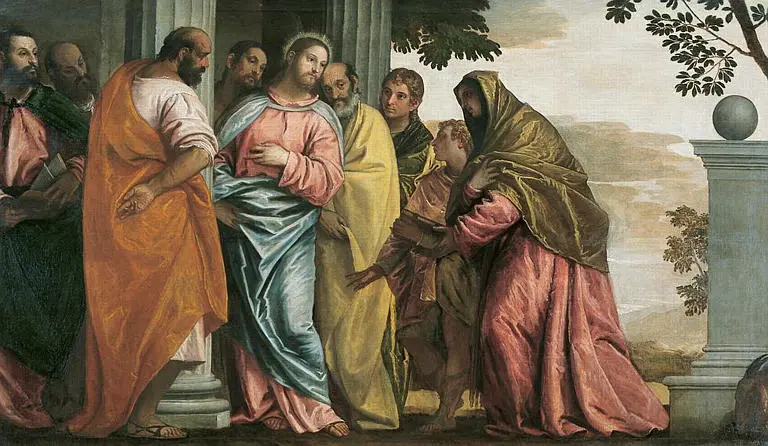Jijo Kandamkulathy, CMF
Claretian Publications, Macau
29th Sunday in Ordinary Time – Year B
Gospel Reflection – Mk 10:35-45
The gospel today narrates an incident on the final journey of Jesus to Jerusalem. The mother of John and James come to request for the right and left seats of Jesus when he becomes king. The brothers were probably leveraging their claim for the two seats by their mother’s recommendation.
The context of this journey is significant to draw here. Jesus has been accepted as an extraordinary rabbi in the whole of Galilee. Now, he is on a journey, no, on a pilgrimage, to be exact, of nearly two hundred kilometers to Jerusalem. They are going to the Passover festival as their annual tradition. This time around, many people are going together because of Jesus’ popularity.
In the mind of the disciples, Jesus was going to Jerusalem to restore the Kingdom of David, which requires defeating both Pilate and Herod. In the meanwhile, Jesus was melting in the anxiety of the impending torture and crucifixion. Unaware of what is bothering the mind of the Master, the mother of the two is asking for favors for her sons. Probably she was one among the multitude that followed Jesus. It is not a simple matter of insensitivity. It has more to do with the values of the Kingdom of God that Jesus envisaged.
The indignant reaction of the other disciples indicates that they were also aspiring for such positions. The question leads to a discussion about power. Last Sunday, we listened to Jesus talking about possessions, another preoccupation that the disciples had. Psychologists say the desire for power, possessions, and pleasure are three deep-seated drives of human nature. The disciples need not be blamed for their natural inclinations. They are warning signs for us too. What kind of subtle games our minds play on us to achieve power!
Religious nuns, priests, and some lay people in the Church take three vows to sublimate these three deep-seated drives mentioned above. Against bodily pleasure is the vow of chastity. Against power is the vow of obedience. Against possession is the vow of poverty. Unfortunately, these vows could sometimes create sterile, fruitless, rigid, and miserable discipleship. It happens when the natural drives are forcefully suppressed.
The principle that Jesus sets forth is one of sublimation. The antidote for the craze for power is not to renounce positions of power but instead use positions of power for service and sacrificial love. Sublimation of the basic human or animal instinct for self-assertion to acts of service and sacrifice.
The antidote for the pleasure-seeking drive is to develop altruistic generous love towards all. Many religious men and women take care of the old, the sick, the abandoned, and the physically- or mentally-challenged children, and the elderly to whom this sublimated love is poured out.
The antidote for the drive for possessiveness is a generous offering of whatever they own to others. The religious vow of poverty does not mean to convert oneself into a miserable person but to find the inner potential for generosity to take care of the needs of others before one’s own. How many thousands of houses are built, poor people are fed and warmed through the channelling of many resources of these consecrated men and women.
So the master’s invitation is not to negate or block the natural human drives but to sublimate them for nobler causes. The advice of Jesus is not just an off-hand wise remark but something that he has established as a value in himself. If you remember the temptations of Christ, they were on these three basic human drives. The temptation for food is about the drive for pleasure, the temptation to jump from the temple top was to establish power, and the temptation to give all the kingdoms of the world was the drive for possession. The Master has overcome these temptations and is advising the value that he has been practicing.
Every person on earth is born with an authority that entails certain rights. The gospel passage reminds us to use the authority invested in us as parents, as teachers, as children as an act of service. Exercising authority with power and force is the sign of an unreflecting self. The Master’s invitation is to exercise authority as a service by sublimating the drive for power.


 Follow
Follow


